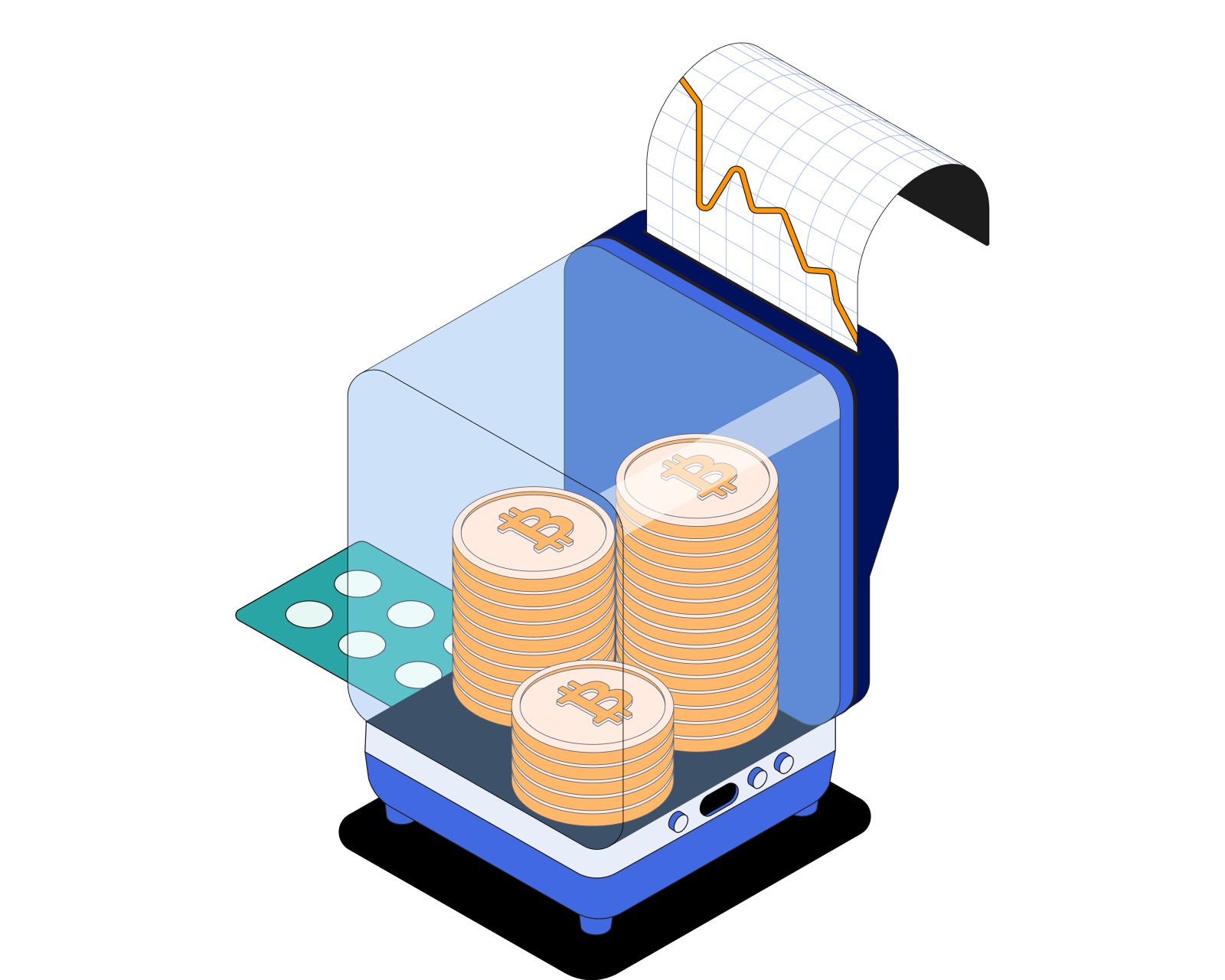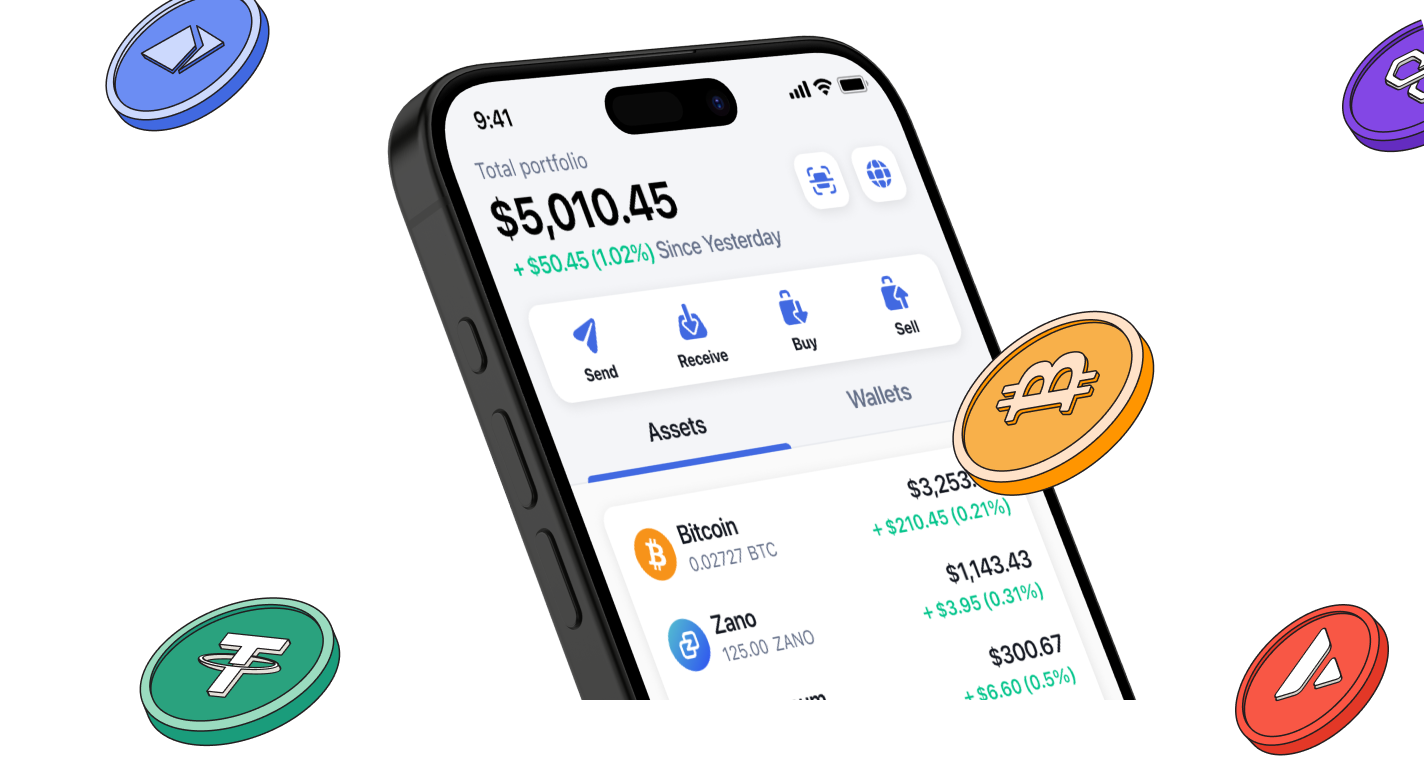How to Report Yield Farming Income

Table of Contents
- Overview of Yield Farming and Its Rise in DeFi
- Understanding Yield Farming
- Tax Authorities and Yield Farming Guidance
- Taxable Events in Yield Farming
- Income vs. Capital Gains
- Reporting Yield Farming Income for Individuals
- Yield Farming for Businesses
- Advanced Yield Farming Scenarios
- Record-Keeping and Documentation
- Software and Tools for Yield Farming Reporting
- Cross-Border Tax Considerations
- Losses, Write-Offs, and Tax Planning
- Common Mistakes and Audit Triggers
- Voluntary Disclosure and Correcting Past Mistakes
- Tax-Advantaged Strategies for Yield Farming Investors
- Regulatory Developments and Future Trends
- Case Studies
- Conclusion
Overview of Yield Farming and Its Rise in DeFi
Yield farming, often referred to as liquidity mining, is one of the most innovative financial practices emerging from the decentralized finance (DeFi) ecosystem. At its core, yield farming involves providing liquidity to decentralized platforms - typically through automated market makers (AMMs), lending protocols, or other DeFi applications - in exchange for financial rewards. Participants, often called liquidity providers (LPs), deposit their cryptocurrency assets into liquidity pools. These pools facilitate trading, lending, or borrowing within the platform, and in return, users earn rewards, which are frequently distributed in the form of governance tokens, protocol-native tokens, or additional cryptocurrency interest.
The practice gained mainstream attention in 2020 with the rise of platforms like Compound, Uniswap, and Aave, where participants could lock up their tokens and earn attractive yields, sometimes exceeding traditional finance benchmarks by several orders of magnitude. Yield farming differs from traditional investment avenues because the returns are dynamic and highly dependent on network activity, token demand, and the overall DeFi ecosystem’s growth. Unlike conventional savings accounts or bonds, where interest rates are fixed or predictable, DeFi yields fluctuate in real time, reflecting changes in liquidity demand, protocol incentives, and market volatility.
This rapid rise in popularity is driven by multiple factors. Firstly, the DeFi ecosystem is permissionless, meaning anyone with internet access and cryptocurrency holdings can participate without relying on centralized intermediaries like banks or brokerages. Secondly, many platforms incentivize early adopters through lucrative governance token distributions, creating a network effect where early liquidity providers attract more participants. Thirdly, the composable nature of DeFi allows users to layer multiple strategies, such as staking LP tokens in additional protocols to earn compounded rewards, further increasing potential returns.
Importance of Reporting Yield Farming Income Correctly
While the financial opportunities in yield farming are substantial, the tax and regulatory implications are equally significant. Cryptocurrency rewards earned through yield farming are considered taxable events in most jurisdictions. Failure to report income accurately can result in severe penalties, interest, or even legal action. The decentralized and pseudo-anonymous nature of blockchain transactions adds complexity, making it challenging for investors and businesses to maintain accurate records.
Tax authorities globally have begun to recognize yield farming as a distinct source of income, separate from traditional capital gains from simple token trading. The value of tokens received at the time of receipt often determines the taxable amount, and when these tokens are later sold, additional capital gains calculations may be required. Misclassifying these rewards can trigger audits and lead to substantial financial liabilities. For example, treating yield farming rewards as non-taxable or delaying recognition until liquidation of tokens can create discrepancies in reported income, which tax authorities are increasingly scrutinizing. Accurate reporting is not only essential for compliance but also for strategic tax planning, allowing investors to optimize their liability through recognized mechanisms such as long-term holding, loss harvesting, and appropriate entity structuring.
In addition, businesses engaging in yield farming—such as DeFi protocol developers, crypto funds, or institutional participants—must integrate reward recognition into their financial statements and accounting systems. This ensures clarity for stakeholders, investors, and auditors while maintaining regulatory compliance. For individuals, failure to maintain proper records of rewards, transaction timestamps, and fair market valuations can lead to compounded reporting errors across multiple tax years, particularly for those participating in numerous protocols simultaneously.
Differences Between Yield Farming, Staking, and Liquidity Mining
Though these terms are sometimes used interchangeably, subtle differences exist:
-
Yield Farming: The broadest term encompassing the practice of earning rewards by deploying cryptocurrency assets into various DeFi protocols. Yield farming often involves strategies that maximize returns by actively moving assets between protocols or leveraging multiple reward streams.
-
Staking: Refers specifically to locking up tokens to support network operations, such as securing a proof-of-stake (PoS) blockchain. Stakers are rewarded with network-native tokens or transaction fees. While staking can be considered a form of yield generation, it is generally less dynamic and more protocol-specific than yield farming.
-
Liquidity Mining: A subset of yield farming in which participants provide liquidity to decentralized exchanges (DEXs) or lending platforms in exchange for additional token rewards. The term emphasizes the act of “mining” new tokens through the provision of liquidity rather than network validation or token holding.
Understanding these distinctions is crucial for tax purposes because each activity may be treated differently under local laws. For example, staking rewards might be considered ordinary income at the time of receipt, while liquidity mining could trigger both income and capital gains events, depending on token disposition and timing.
Global Adoption Trends and Regulatory Attention
Yield farming is no longer a niche activity limited to crypto enthusiasts. Institutional investors, hedge funds, and retail participants across the globe have increasingly embraced these strategies to capture high yields and diversify their portfolios. According to DeFi analytics platforms like DefiLlama, total value locked (TVL) in yield farming protocols has surpassed tens of billions of dollars, reflecting both market growth and user confidence in these decentralized systems.
Regulators have taken notice, particularly in jurisdictions with robust tax enforcement frameworks. The United States Internal Revenue Service (IRS) has issued guidance treating rewards as taxable income, while the Canada Revenue Agency (CRA) considers crypto rewards as either income or capital gains depending on circumstances. The European Union, United Kingdom, Singapore, and Australia are developing frameworks to address DeFi-specific rewards, with a focus on compliance, reporting obligations, and investor protection.
This growing regulatory scrutiny has important implications. Investors need to understand their obligations in multiple jurisdictions, particularly when engaging with cross-border protocols. Additionally, emerging guidance emphasizes transparency, accurate valuation, and comprehensive record-keeping to mitigate the risk of audits and penalties. As DeFi continues to evolve, tax authorities are likely to refine their approaches, making early compliance and structured reporting not just a requirement but a strategic advantage for yield farmers.
Understanding Yield Farming
Definition of Yield Farming
Yield farming, also known as liquidity farming, is a decentralized finance (DeFi) strategy where participants deploy cryptocurrency assets into protocols to earn rewards. The concept is built around liquidity provision, where users supply digital assets to facilitate network functions such as trading, lending, borrowing, or staking. In return, the protocol distributes rewards, typically in the form of native tokens, governance tokens, or additional crypto incentives.
Unlike traditional investment instruments, yield farming allows participants to actively maximize returns by engaging with multiple platforms, combining strategies, or “compounding” rewards through re-investment. Its appeal lies in the dynamic yields, which can often surpass traditional banking or even conventional investment avenues. The concept gained prominence in 2020, with platforms like Uniswap, Compound, and Aave leading the way. These protocols introduced liquidity mining as an incentive to attract early participants, with governance tokens enabling community voting and protocol control.
Types of Yield Farming Rewards
Yield farming rewards can be highly diverse, depending on the protocol, strategy, and asset class involved. From a tax perspective, each reward type may be treated differently, making proper classification essential. The main types include:
1. Staking Rewards
While staking is often considered separate from yield farming, many DeFi strategies combine staking with liquidity provision. Staking involves locking up tokens to support network security or protocol operations, typically on proof-of-stake (PoS) blockchains.
-
Reward Mechanism: Validators or stakers receive newly minted tokens or transaction fees proportional to their stake.
-
Examples: Ethereum 2.0 staking, Cosmos (ATOM), Polkadot (DOT).
-
Tax Consideration: These rewards are often treated as ordinary income at the fair market value (FMV) on the day they are received.
2. Mining Rewards
In some DeFi protocols, providing liquidity or participating in early pools can be conceptualized as a form of mining, where users “mine” protocol tokens by locking up their assets. Unlike traditional Proof of Work (PoW) mining, this is often proof-of-liquidity mining.
-
Reward Mechanism: Users earn platform-specific tokens, sometimes combined with fees from trades occurring within the pool.
-
Examples: SushiSwap’s SUSHI rewards, Curve’s CRV distributions.
-
Tax Consideration: The moment the tokens are credited, the FMV is recognized as income. Subsequent sales trigger capital gains.
3. Yield Farming Rewards
The most direct form of yield farming involves providing liquidity to a decentralized exchange (DEX) or lending protocol. Users deposit token pairs into a pool and earn fees, plus protocol-specific rewards.
-
Reward Mechanism: Liquidity providers earn both transaction fees (often proportional to pool share) and bonus tokens.
-
Examples: Uniswap LP tokens, Balancer pools, Aave interest-bearing tokens.
-
Tax Consideration: Income recognition occurs when rewards are received, not when they are withdrawn or sold. Additionally, fees earned in the pool contribute to taxable income.
4. Referral Program Rewards
Many DeFi platforms incentivize users to onboard others through referral or affiliate programs. Participants may receive tokens for each new user they bring to the platform.
-
Reward Mechanism: Tokens are credited based on referrals or completed actions by referred users.
-
Examples: Compound referral tokens, Celsius Network affiliate rewards.
-
Tax Consideration: These tokens are taxable at FMV when received, similar to staking or liquidity rewards, regardless of whether they are immediately sold.
5. Tokenized Incentive Programs
Protocols often issue specialized token incentives to encourage behaviors beyond liquidity provision, such as governance participation, voting, or holding tokens long-term.
-
Reward Mechanism: Users earn tokens for performing actions that support protocol stability or growth.
-
Examples: Governance token airdrops in MakerDAO or Uniswap’s UNI token distributions.
-
Tax Consideration: Taxable events may be triggered at receipt, and further capital gains may apply when tokens are later disposed of.
How Rewards Are Distributed
The mechanics of reward distribution vary depending on whether the platform is centralized or decentralized. Understanding this distinction is critical for accurate reporting.
Centralized Platforms
Centralized exchanges (CEXs) or platforms often distribute rewards directly to users’ accounts. Users have access to clear transaction histories, statements, and FMV data, which simplifies tracking for tax purposes.
-
Examples: Binance Earn, Coinbase staking, Kraken yield programs.
-
Tax Considerations: Rewards are typically reported by the platform and can be directly translated to income for tax purposes. Users should reconcile reported amounts with their own records.
Decentralized Platforms
DeFi protocols operate in a decentralized manner, where rewards are credited automatically to users’ wallets based on smart contract logic. No centralized reporting is provided, which shifts the responsibility of record-keeping entirely to the participant.
-
Examples: Uniswap, Aave, Curve, SushiSwap.
-
Tax Considerations: Users must manually track token receipts, FMV at the time of acquisition, and subsequent disposition. Blockchain explorers or third-party software (e.g., Koinly, CoinTracker, TokenTax) are often necessary.
Taxable vs. Non-Taxable Rewards
Not all rewards are treated equally under tax law. Understanding the distinction between taxable income events and non-taxable events is essential.
Taxable Rewards
-
Staking or liquidity mining distributions received in tokens.
-
Tokenized incentives or governance tokens credited to wallets.
-
Referral or affiliate program rewards denominated in cryptocurrency.
-
Fees earned in pools that are automatically reinvested or distributed.
Non-Taxable Events (Potentially)
-
Token appreciation within a wallet before withdrawal or sale (unrealized gains).
-
Transfers of tokens between wallets controlled by the same individual.
-
Token airdrops that do not meet income recognition criteria in certain jurisdictions (some countries treat them as gifts if below a threshold).
Key Challenges in Reporting Yield Farming Rewards
-
Multiple Token Types: Many protocols distribute multiple token types, requiring separate income recognition for each.
-
Dynamic FMV Calculations: Rewards are often distributed continuously or compounded, requiring real-time FMV assessment.
-
Multi-Chain Operations: Cross-chain liquidity farming increases complexity, as the same reward may appear on different networks.
-
Automated Reinvestment: Auto-compounding strategies trigger repeated taxable events without cash withdrawal, complicating reporting.
-
Regulatory Ambiguity: Many jurisdictions are still clarifying guidance for DeFi, leading to uncertainty around timing, classification, and valuation.
Tools and Best Practices for Tracking Yield Farming Rewards
-
Wallet Aggregators: Tools like Zapper and Zerion consolidate reward data across chains.
-
Tax Software Integration: Platforms like Koinly or CoinTracker can automatically calculate income and capital gains from DeFi protocols.
-
Manual Record-Keeping: Maintaining spreadsheets with timestamps, token amounts, FMV, and transaction hashes is crucial, particularly for multi-chain operations.
-
Regular Reconciliation: Periodically reconcile blockchain records with software or exchange statements to ensure accuracy.
Examples of Yield Farming Tax Scenarios
-
Scenario 1: An individual provides 5 ETH and 2,000 USDC to a Uniswap pool and receives UNI tokens as rewards. The FMV of UNI at the time of distribution is $500. The individual must report $500 as income at that date. Later, if the UNI tokens are sold for $700, a $200 capital gain is realized.
-
Scenario 2: A user participates in an auto-compounding Aave pool, receiving interest-bearing tokens (aTokens). Even if the rewards are reinvested, each accrual constitutes taxable income at FMV, which must be recorded.
-
Scenario 3: A liquidity provider moves LP tokens between wallets on different chains. Since no sale or disposal occurs, there is no taxable event at transfer, but FMV must be tracked for future reporting when the pool is exited.
Summary
Yield farming represents a complex yet rewarding avenue in the DeFi landscape. Properly understanding the mechanics, types of rewards, and taxable events is critical for compliance, tax planning, and financial transparency. Participants must recognize income when rewards are received, track FMV accurately, and account for capital gains upon disposal. Centralized platforms offer some convenience with pre-compiled reports, but decentralized protocols require robust tracking systems, careful record-keeping, and often, integration with specialized tax software.
Accurate reporting protects participants from regulatory scrutiny, enables strategic tax planning, and ensures clarity in both personal and business financial statements. As DeFi continues to grow, so too does the importance of understanding and complying with evolving yield farming tax obligations.
Tax Authorities and Yield Farming Guidance
Overview of Global Approaches
The regulatory landscape for yield farming remains nascent, with each jurisdiction approaching it slightly differently. Given the rapid expansion of DeFi platforms and tokenized rewards, tax authorities are actively evaluating how to classify and tax yield farming activities. Understanding these approaches is essential for investors, traders, and businesses.
1. United States – IRS Guidance
The Internal Revenue Service (IRS) treats most cryptocurrency rewards as taxable income. While the IRS has not issued yield-farming-specific guidance, principles from staking, mining, and airdrop guidance apply:
-
Taxable Events: Receiving rewards (interest, governance tokens, or LP tokens) constitutes ordinary income at fair market value (FMV) at receipt.
-
Disposal Events: Selling or converting tokens triggers capital gains or losses.
-
Record-Keeping: Taxpayers must track acquisition dates, FMV, and subsequent dispositions.
-
Notable Reference: IRS Notice 2014-21 (Bitcoin guidance) and subsequent updates on staking and mining income.
2. Canada – CRA Guidance
The Canada Revenue Agency (CRA) treats yield farming as a form of income, either as business income or property income, depending on the activity's frequency and scale:
-
Business vs. Property: Frequent yield farming activities or professional liquidity provision may constitute business income, fully taxable. Casual farming may be treated as property income, taxed on the FMV of received tokens.
-
Documentation: CRA emphasizes detailed record-keeping of token receipts, FMV, and transactions.
-
Reference: CRA Cryptoasset Guidance (2022 update) provides frameworks for staking, mining, and DeFi rewards, which can be analogized for yield farming.
3. European Union – Selected Member States
The EU has a fragmented approach:
-
Germany: Crypto income is treated as private sales, with tax-free periods for long-term holdings (>1 year). Yield farming rewards are likely income at receipt, with capital gains applicable upon sale.
-
France: Rewards are generally treated as income from movable property, taxable at a flat rate.
-
Italy & Spain: Taxed as miscellaneous income or capital gains depending on the activity.
4. United Kingdom – HMRC
HM Revenue & Customs (HMRC) views cryptocurrency as property. Tax treatment depends on the activity type:
-
Income: If farming yields are received as rewards, they constitute miscellaneous income taxed at personal income rates.
-
Capital Gains: Selling or exchanging farmed tokens triggers capital gains tax, calculated from FMV at receipt.
-
Documentation: HMRC emphasizes precise recording of token receipt dates and values.
5. Singapore – IRAS
The Inland Revenue Authority of Singapore (IRAS) does not impose capital gains tax. However:
-
Income: Yield farming rewards may be considered trading income if the activity is frequent or professional.
-
Casual Farming: Occasional participation without active trading might not trigger taxable events.
-
Reference: IRAS guidance on digital tokens and trading income provides frameworks for similar DeFi rewards.
6. Australia – ATO
The Australian Taxation Office (ATO) classifies crypto rewards based on their nature:
-
Ordinary Income: Rewards received via yield farming are generally treated as ordinary income at FMV at the time of receipt.
-
Capital Gains: Disposing of tokens triggers capital gains tax.
-
Record-Keeping: Detailed transaction records are mandatory, including pool deposits, token swaps, and liquidity exits.
Emerging Guidance for DeFi and Tokenized Incentives
Many authorities are exploring specific guidance for DeFi activities:
-
FMV Determination: Accurate pricing at the moment of token receipt is critical.
-
Automated Compounding: Auto-staking and compounding mechanisms may trigger repeated taxable events, requiring continuous tracking.
-
Cross-Chain Transactions: Multi-chain yield farming increases complexity for tax reporting, particularly when assets move across jurisdictions.
-
Governance Tokens: Rewards with voting or control rights may be taxable on receipt, regardless of liquidity or sellability.
Challenges Regulators Face
-
Lack of Standardization: Each protocol has unique reward mechanisms, compounding methods, and token economics.
-
Privacy & Decentralization: DeFi platforms often operate without intermediaries, making enforcement and reporting difficult.
-
Multi-Jurisdictional Operations: Users can farm rewards on international protocols, creating complex cross-border tax obligations.
-
Rapid Innovation: Continuous development in DeFi (NFT staking, fractionalized tokens, liquidity pools) outpaces regulatory updates.
-
Fair Market Value Assessment: Highly volatile token prices complicate precise income reporting.
Taxable Events in Yield Farming
Yield farming introduces multiple potential taxable events that can occur at different stages of the investment. Understanding these events is critical to accurate tax reporting and compliance.
1. Receiving Rewards: Token Issuance, Interest, and Fees
-
Token Rewards: Receiving governance or protocol tokens constitutes ordinary income based on FMV at receipt.
-
Interest Payments: If tokens are lent or deposited into interest-bearing pools, accrued interest is recognized as taxable income.
-
Fee Income: Liquidity providers earn a share of pool transaction fees. These are considered income when credited, even if automatically reinvested.
Example: Alice provides USDC and ETH to a liquidity pool. She receives $100 worth of UNI tokens plus $5 in trading fees. For tax purposes, Alice must report $105 as income on the day she receives the tokens and fees.
2. Deposits and Withdrawals: FMV Determination
Every deposit or withdrawal can trigger taxable events or complicate FMV calculation:
-
Deposit: Transferring tokens into a yield farming pool is generally not taxable. However, record-keeping is essential to track cost basis for future gains.
-
Withdrawal: Exiting the pool may trigger taxable events if rewards or accrued interest are realized. FMV must be determined at the time of withdrawal if auto-compounded.
Example: Bob deposits 1 ETH worth $2,500 into a farming pool. After three months, his rewards are auto-compounded, and he withdraws 1.05 ETH valued at $3,000. He recognizes $500 as taxable income, with a corresponding capital gain if the ETH itself increased in value.
3. Impermanent Loss and Its Tax Implications
Impermanent loss occurs when the value of deposited tokens diverges from what would have been if held separately. While often discussed as a financial risk, tax authorities have differing views:
-
Current Treatment: Many jurisdictions do not explicitly tax impermanent loss until the asset is withdrawn or sold.
-
Recognition Timing: Losses may be recognized upon exit from the liquidity pool, potentially offsetting gains from rewards.
Example: Carla provides liquidity for ETH/DAI. ETH appreciates, causing her token share to be worth less than simply holding ETH and DAI. When she withdraws, she realizes the impermanent loss, which may offset part of her taxable yield farming income.
4. Token Swaps, Conversions, and Liquidity Pool Exits
-
Token Swaps: Exchanging one token for another within the protocol (e.g., ETH for UNI) triggers capital gains or losses, calculated from FMV at the time of the swap.
-
Converting Rewards: Selling or converting farmed tokens to fiat currency or stablecoins triggers capital gains based on the difference between FMV at receipt and disposal.
-
Pool Exits: Exiting liquidity pools may involve receiving multiple token types, each constituting a separate taxable event.
Example: David exits a SushiSwap pool and receives ETH and SUSHI tokens. He must report:
-
Ordinary income for any accrued rewards at FMV when issued.
-
Capital gains for each token from the difference between FMV at receipt and value at sale/conversion.
Summary of Taxable Events
| Event | Tax Implication | Notes |
| Token rewards received | Ordinary income | FMV at receipt |
| Trading fees earned | Ordinary income | Recognize when credited |
| Deposit into pool | No immediate tax | Track cost basis |
| Withdrawal from pool | Income recognition if rewards realized | FMV at exit |
| Token swaps | Capital gain/loss | FMV at swap |
| Impermanent loss realized | Potential capital loss | Offset gains if recognized |
| Conversion to fiat | Capital gain/loss | Difference between FMV at receipt and conversion |
Income vs. Capital Gains
Yield farming income can involve multiple layers of taxation. Understanding the distinction between ordinary income and capital gains is critical to accurate reporting.
1. Ordinary Income vs. Capital Gains
Ordinary income arises when tokens are received as rewards, fees, or interest. It is typically taxed at the standard income tax rates applicable to individuals, traders, or businesses.
-
Examples of ordinary income in yield farming:
-
LP tokens received as rewards for providing liquidity.
-
Interest or rewards from lending protocols.
-
Trading fees credited to liquidity providers.
-
Capital gains arise when farmed tokens are sold, swapped, or converted to another asset (including fiat). Gains are calculated as the difference between the fair market value (FMV) at receipt and the value at disposition.
-
Capital gain examples:
-
Selling a reward token for USDT or USD.
-
Swapping LP tokens for a different cryptocurrency.
-
Converting governance tokens into another DeFi asset.
-
2. Short-Term vs. Long-Term Gains
In many jurisdictions, the holding period determines whether gains are short-term or long-term:
-
United States:
-
Short-term: tokens held ≤1 year are taxed at ordinary income rates.
-
Long-term: tokens held >1 year may qualify for reduced capital gains rates.
-
-
Canada:
- All crypto gains are generally taxed as capital gains without distinction, but frequent yield farming may be treated as business income.
Example: Alice receives UNI tokens worth $1,000 on January 1, 2024. She sells them on December 31, 2024, for $1,200. In the US:
-
FMV at receipt: $1,000 → ordinary income.
-
Sale price: $1,200 → $200 short-term capital gain.
3. Differences for Individual Investors, Traders, and Businesses
| Participant Type | Income vs. Capital Gain Treatment | Key Notes |
| Individual Investors | Ordinary income at receipt, capital gains at sale | Occasional farmers may report as property income in some jurisdictions |
| Professional Traders | Income often treated as business income | May deduct related expenses, higher reporting obligations |
| Businesses / Corporations | Rewards counted as business income | Can offset with operating expenses; requires accounting integration |
4. Case Studies
-
Case Study 1 – Individual Investor: Bob participates casually in SushiSwap for 6 months. Receives $500 worth of SUSHI tokens. He sells half of the tokens at $300. He reports:
-
$500 ordinary income at FMV when received.
-
$50 capital gain (difference between $250 basis and $300 sale).
-
-
Case Study 2 – Business: A DAO provides liquidity for multiple tokens and earns $10,000 in rewards. They maintain detailed expense records for gas, fees, and software.
-
Report $10,000 as business income.
-
Deduct $1,500 in expenses.
-
Net taxable income: $8,500.
-
Reporting Yield Farming Income for Individuals
Yield farming income reporting is complex due to multi-token rewards, compounding mechanisms, and multiple platforms. Correct reporting is critical to avoid audits or penalties.
1. Forms and Schedules
United States
-
Form 1040 – Individual Income Tax Return: Report ordinary income.
-
Schedule D – Capital Gains and Losses: Report gains from selling or swapping farmed tokens.
-
Form 8949 – Sales and Other Dispositions of Capital Assets: Itemize each token disposition.
Canada
-
T1 – Individual Income Tax Return: Report all crypto income.
-
Schedule 3 – Capital Gains: For dispositions of farmed tokens.
-
T1135 – Foreign Asset Reporting: Required if holdings exceed CAD 100,000 across foreign wallets or exchanges.
Other Jurisdictions
- EU, UK, Australia, Singapore: Similar reporting is required, with variations in forms and calculation methods.
2. Reporting Multiple Rewards from Different Protocols
-
Maintain a centralized record of all tokens received from different pools.
-
Track date received, FMV, pool type, and reward source.
-
Include auto-compounding rewards, as each reinvestment may be taxable.
3. Tracking Multi-Token and Multi-Chain Rewards
-
Use crypto tax software (e.g., Koinly, TokenTax, CoinTracker) for multi-chain tracking.
-
Record wallet addresses, token types, and transaction IDs.
-
Maintain manual logs for private chain or small-scale farming that software does not cover.
4. Common Mistakes and Pitfalls
-
Not recognizing auto-compounding rewards as taxable events.
-
Failing to include impermanent loss adjustments where applicable.
-
Incorrectly calculating FMV, especially for illiquid or low-volume tokens.
-
Mixing personal and professional farming activity without clear records.
Yield Farming for Businesses
Businesses engaged in yield farming face unique tax considerations, particularly in the treatment of income, expenses, and reporting.
1. Accepting Rewards as Business Income
-
Tokens received through yield farming constitute ordinary business income.
-
Recognition occurs at FMV upon receipt, not sale.
-
Revenue recognition policies should be aligned with accounting standards (GAAP or IFRS).
2. Deductible Expenses
Businesses can deduct expenses directly related to farming activity, including:
-
Gas fees: Transaction fees incurred during deposits, withdrawals, or swaps.
-
Platform fees: LP or DeFi protocol fees charged to participants.
-
Software: Accounting or tracking software costs.
-
Hardware: Mining rigs, wallets, or servers used to support farming operations.
Example: A business receives $20,000 in token rewards. They spent $3,000 in gas and software fees. Taxable business income = $17,000.
3. Accounting and Bookkeeping Considerations
-
Maintain detailed ledgers for each wallet and protocol.
-
Record FMV at the time of reward issuance and date of receipt.
-
Track token swaps, compounding, and exits to calculate capital gains accurately.
-
Reconcile rewards with bank or fiat conversions for financial statements.
4. Reporting Consolidated Rewards Across Wallets
-
Businesses often use multiple wallets or smart contracts across chains.
-
Consolidation is necessary to prevent underreporting.
-
Tax software or ERP integration can automate reporting for multi-wallet, multi-chain operations.
Navigating yield farming taxation is complex and requires precision, record-keeping, and expertise. Block3 Finance specializes in:
-
Comprehensive crypto reward reporting
-
Accurate tax planning and filing
-
Business and individual compliance across jurisdictions
Book a free consultation today to ensure your yield farming activities are fully compliant, optimized, and professionally managed.
Advanced Yield Farming Scenarios
As yield farming grows more sophisticated, investors increasingly encounter complex DeFi mechanisms. These advanced scenarios require careful attention to taxation, reporting, and record-keeping.
1. Cross-Chain Liquidity Farming and Tax Implications
Cross-chain liquidity farming involves depositing assets on one blockchain and receiving rewards in another chain’s token. This complexity introduces multiple tax considerations:
-
Income recognition: Rewards received on a different blockchain are considered taxable income at FMV on receipt, just like single-chain farming.
-
Cross-chain transactions: Moving tokens between chains (bridging) may be treated as a disposition for capital gains, depending on jurisdiction.
-
Example: Alice deposits USDC on Ethereum into a multi-chain protocol and receives SOL tokens on Solana as yield rewards.
-
FMV of SOL at the time of receipt = ordinary income.
-
Moving SOL back to Ethereum could trigger a taxable event if considered a swap by the local tax authority.
-
Key considerations:
-
Document each cross-chain transfer with transaction hash, date, and FMV.
-
Track bridge fees and slippage, as these may reduce the taxable amount of gains.
2. Multi-Token Pools and LP Token Accounting
Liquidity pools frequently involve multiple tokens (e.g., ETH/USDT/DAI). LP tokens represent ownership in the pool, and their valuation is key to tax compliance:
-
Income at receipt: LP tokens are considered ordinary income at FMV when received as rewards.
-
Capital gains upon exit: When LP tokens are withdrawn, each underlying asset may trigger individual capital gains calculations.
-
Impermanent loss: Although not directly deductible, impermanent loss affects the effective capital gain when LP tokens are redeemed.
Example: Bob participates in a 3-token pool: ETH, USDT, DAI.
-
He receives LP tokens worth $1,000.
-
After 6 months, he withdraws assets valued at $1,200.
-
He must report $1,000 ordinary income at issuance and $200 capital gain at redemption, adjusted for impermanent loss.
Best practices:
-
Maintain individual token tracking for each LP token received.
-
Note reward frequency, as daily or weekly compounding can create multiple income events.
3. Protocol Mergers, Token Migrations, and Governance Rewards
DeFi protocols sometimes undergo mergers, token swaps, or governance token distributions, creating complex taxable events:
-
Token migration: When one token is swapped for another (e.g., UNI → UNI v2), the swap may be treated as a disposition for capital gains purposes.
-
Governance tokens: Distributed as part of yield farming incentives or protocol upgrades, they are taxable as ordinary income at FMV upon receipt.
-
Mergers and forks: Tokens received from forks or merged protocols are treated as additional income at FMV, even if the old tokens are retained.
Example: Carol holds LP tokens on Protocol A. Protocol A merges with Protocol B and issues 500 new governance tokens worth $2,500.
-
Carol reports $2,500 as ordinary income at receipt.
-
Subsequent sales of these tokens trigger capital gains based on FMV at sale.
4. DeFi Composability: Rewards from Nested Yield Farming
Nested yield farming involves staking LP tokens from one protocol into another:
-
Multiple income events: Each layer of staking generates taxable rewards.
-
FMV determination: FMV must be assessed at the time each reward is received.
-
Accounting challenges: Careful separation of primary and secondary rewards is critical for accurate reporting.
Example: David deposits ETH/USDC LP tokens into a Curve pool, then stakes the resulting LP tokens in a third-party farming protocol.
-
Rewards from Curve → ordinary income at FMV.
-
Rewards from third-party staking → separate ordinary income at FMV.
-
Each redemption triggers capital gains based on the FMV of each token at exit.
Key takeaway: Advanced yield farming requires layered accounting for multiple token types, cross-chain interactions, and reward nesting.
Record-Keeping and Documentation
Accurate record-keeping is essential to ensure compliance, accurate reporting, and audit readiness. Yield farming generates thousands of micro-transactions across multiple chains, making systematic documentation critical.
1. Best Practices for Transaction Logs
-
Maintain a master ledger of all transactions: deposits, withdrawals, token swaps, staking events, and rewards.
-
Record transaction hash, date, FMV, protocol, and wallet address for every action.
-
Keep separate logs for each chain, token type, and LP position to prevent confusion.
Example:
For a 3-month farming period:
| Date | Protocol | Token | Transaction Hash | FMV at Receipt | Notes |
| 2026-01-10 | Uniswap | ETH/USDT LP | 0xabc123... | $1,500 | Initial deposit |
| 2026-01-15 | Uniswap | ETH/USDT LP | 0xdef456... | $50 | Daily reward |
| 2026-02-01 | Compound | COMP | 0xghi789... | $200 | Staked LP tokens |
2. Wallet Tracking, API Integrations, and CSV Exports
-
Connect wallets via API to crypto tax software to automate transaction tracking.
-
Use CSV exports when APIs are unavailable or for private chain activity.
-
Reconcile transactions manually or through software to ensure no duplicates or missing entries.
Tips:
-
Include all gas fees, transaction costs, and platform fees.
-
Track staking rewards separately to distinguish ordinary income from capital gains.
3. FMV Determination for Each Reward
-
Determine fair market value at receipt using exchange prices or reputable price indices.
-
For tokens with low liquidity, use average of multiple exchanges or on-chain DEX pricing.
-
FMV is critical for ordinary income reporting and basis for future capital gains calculations.
Example:
Receiving a rare DeFi governance token on January 5, 2026:
-
DEX price: 0.25 ETH
-
Exchange 1: 0.24 ETH
-
Exchange 2: 0.26 ETH
-
Average FMV = 0.25 ETH → $500 ordinary income
4. Handling Errors, Forks, and Blockchain Reorganizations
-
Transaction errors: Record failed transactions separately; generally not taxable if reverted.
-
Blockchain forks: Tokens received via forks are ordinary income at FMV on receipt.
-
Reorganizations (reorgs): If a transaction is invalidated, adjust logs to reflect accurate taxable events.
Best Practices:
-
Regularly reconcile software-generated reports with on-chain activity.
-
Keep screenshots, exchange confirmations, and receipts for audit defense.
-
Use timestamped ledger entries to support FMV calculations.
Yield farming tax compliance is complex, multi-chain, and highly nuanced. Mistakes in record-keeping, FMV calculation, or multi-token accounting can trigger audits, penalties, or missed deductions. Block3 Finance offers:
-
Advanced DeFi and yield farming reporting
-
Multi-chain transaction consolidation
-
Accurate income recognition and capital gains tracking
-
Audit-ready documentation and compliance support
Book a free consultation today to ensure your yield farming operations are fully compliant, optimized for tax efficiency, and professionally managed.
Software and Tools for Yield Farming Reporting
Yield farming involves thousands of micro-transactions across multiple blockchains, decentralized protocols, and wallets. Without proper reporting tools, tracking rewards, impermanent losses, and capital gains becomes extremely challenging. The use of specialized crypto tax software is critical for both individual investors and businesses.
1. Crypto Tax Software Platforms
Several platforms cater specifically to DeFi and yield farming income:
-
Koinly:
-
Supports multiple chains, exchanges, and wallets.
-
Automates FMV calculation at receipt for yield farming rewards.
-
Generates tax-ready reports compatible with IRS (US), CRA (Canada), and other international tax authorities.
-
Includes impermanent loss tracking and LP token accounting.
-
-
TokenTax:
-
Designed for professional-level DeFi investors.
-
Handles nested yield farming, staking, and multi-token pools.
-
Provides audit-ready reporting with cost basis, ordinary income, and capital gains separation.
-
-
CoinTracker:
-
Focuses on portfolio tracking as well as tax reporting.
-
Integrates directly with exchanges, wallets, and DeFi protocols.
-
Provides visual dashboards for income and reward tracking.
-
-
ZenLedger:
-
Offers a simple interface for yield farming and DeFi rewards.
-
Supports tax-loss harvesting calculations, especially for high-frequency reward transactions.
-
Can automatically consolidate multi-chain reward data.
-
Key benefits:
-
Eliminates manual data entry from thousands of transactions.
-
Automatically calculates ordinary income for rewards and capital gains for token disposals.
-
Provides audit-ready reports to defend tax positions.
2. Wallet and Exchange Integrations
Efficient reporting requires integrating all relevant wallets and platforms:
-
Wallets: MetaMask, Trust Wallet, Ledger, Trezor, etc.
-
Exchanges: Binance, Coinbase, Kraken, FTX, and decentralized exchanges (DEXs) like Uniswap and SushiSwap.
-
DeFi protocols: Compound, Aave, Curve, Yearn, PancakeSwap, etc.
Integration advantages:
-
Automatically pulls transaction history.
-
Tracks deposits, withdrawals, staking rewards, and LP token movements.
-
Reduces errors in FMV determination and ensures complete reporting.
3. Manual vs. Automated Reporting
-
Manual Reporting:
-
Requires tracking each transaction, reward, token swap, and FMV.
-
Pros: Full control and visibility.
-
Cons: Extremely time-consuming, prone to errors, and difficult for high-volume farming.
-
-
Automated Reporting:
-
Uses APIs or CSV imports to consolidate multi-chain, multi-token data.
-
Pros: Saves time, reduces human error, and ensures audit-ready reporting.
-
Cons: Requires validation to avoid missing or misclassified transactions.
-
4. Case Studies on Software Efficiency
-
Case 1: An individual investor with 1,200 LP token rewards across Ethereum and Solana.
-
Manual reporting took 50+ hours to calculate FMV and gains.
-
Using TokenTax, the investor generated accurate tax reports in under 2 hours, including impermanent loss adjustments.
-
-
Case 2: A small business receiving staking rewards on multiple DeFi protocols.
-
Koinly integrated wallets and exchange accounts, automatically generating consolidated income statements.
-
Enabled accurate expense deductions for gas fees, reducing tax liability while maintaining compliance.
-
Best practice: Even when using software, maintain manual transaction logs to verify unusual rewards or protocol-specific complexities.
Cross-Border Tax Considerations
Yield farming often involves foreign protocols, decentralized exchanges, and multi-jurisdictional reward distributions. This adds a layer of compliance complexity for investors and businesses operating across borders.
1. Receiving Rewards from Foreign Platforms
-
Any crypto rewards from platforms outside the investor’s home jurisdiction are still taxable.
-
Most tax authorities require reporting based on FMV in local currency at the time of receipt.
-
Example: A US citizen receiving rewards from a Singapore-based DeFi protocol must report USD FMV at receipt, even if the reward was denominated in a foreign token.
2. Foreign Account Reporting
Depending on jurisdiction, additional disclosure may be required:
-
US: FBAR and FATCA reporting for foreign-held crypto wallets or accounts exceeding thresholds.
-
Canada: T1135 form for foreign property, including crypto held abroad exceeding CAD 100,000.
-
UK/EU: Additional reporting for foreign crypto holdings may apply based on local laws.
Tip: Maintain a separate ledger for foreign wallets, including protocol name, wallet address, and transaction history.
3. Double Taxation and Treaty Benefits
-
Countries often have tax treaties to avoid double taxation.
-
Example: A Canadian investor earning yield farming rewards from a US-based platform may claim foreign tax credits to offset US withholding tax on rewards.
-
Accurate records are essential to support treaty claims.
4. Multi-Jurisdictional Compliance Strategies
-
Consolidate all rewards in a single ledger to calculate local income accurately.
-
Track FMV at receipt for each jurisdiction’s currency.
-
Maintain audit-ready documentation for each foreign transaction, including screenshots or API reports.
-
Consider professional advice for high-value portfolios spanning multiple countries.
Example Scenario: John, a Canadian resident, participates in yield farming across Ethereum, Solana, and Binance Smart Chain. He earns rewards in ETH, SOL, and BNB.
-
FMV of all rewards is recorded in CAD at receipt.
-
Foreign tax credits are claimed where appropriate.
-
Koinly or TokenTax consolidates cross-chain data for multi-jurisdictional reporting, reducing risk of double taxation and audit exposure.
Managing yield farming income across wallets, chains, and jurisdictions is complex and risky without professional guidance. Block3 Finance can help you track rewards, report accurately, and optimize taxes globally.
Book your consultation today and make sure your DeFi portfolio is fully compliant.
Losses, Write-Offs, and Tax Planning
Yield farming can be highly lucrative, but it also exposes participants to significant financial risks, including impermanent losses, market volatility, and DeFi-specific hazards. Understanding how losses are recognized and strategically applied for tax purposes is critical to managing overall portfolio performance and minimizing tax liabilities.
1. Impermanent Loss and Realized Losses
-
Impermanent Loss (IL):
-
Occurs when the value of deposited tokens in a liquidity pool changes relative to holding them separately.
-
Example: Providing 1 ETH and 2,000 USDC to an ETH/USDC pool. If ETH price rises significantly, your share of the pool may be worth less than if you simply held ETH and USDC separately.
-
For tax purposes:
-
IL is not recognized until the liquidity is withdrawn, making it a realized loss only at that point.
-
FMV of tokens at withdrawal determines gain or loss recognition.
-
-
-
Realized Losses:
-
Include situations where reward tokens are sold or swapped at a lower FMV than at receipt.
-
Can offset other ordinary income or capital gains, depending on the local tax rules.
-
Best practice: Maintain detailed records of all liquidity pool entries, exits, and token valuations at the time of withdrawal. Consider exporting transaction history from DeFi protocols or using crypto tax software to track impermanent losses accurately.
2. Tax-Loss Harvesting Strategies
Tax-loss harvesting allows investors to strategically realize losses to offset taxable gains, effectively reducing their overall tax liability.
-
Application in Yield Farming:
-
If a token reward has depreciated in value, selling or swapping the token before year-end can generate a tax-deductible loss.
-
This loss can offset gains from other tokens, staking rewards, or yield farming profits.
-
-
Considerations:
-
Track short-term vs. long-term gains carefully, as some jurisdictions apply different rates.
-
Avoid wash-sale rules (in applicable jurisdictions) that disallow claiming losses if substantially identical tokens are repurchased immediately.
-
-
Example:
-
Alice earned 500 XYZ tokens from a liquidity pool, valued at $10 each at the time of receipt.
-
By year-end, the token drops to $6. Selling generates a realized loss of $2,000.
-
Alice can use this to offset $2,000 of gains from another DeFi reward, lowering her overall tax burden.
-
3. Carryforward of Losses to Future Tax Years
-
Many jurisdictions allow unused losses to be carried forward to offset gains in future years.
-
For high-volume yield farmers:
-
Losses in one protocol or chain can strategically reduce taxable income in subsequent years.
-
Accurate record-keeping ensures proper tracking of carryforward balances.
-
-
Example:
-
Bob realizes $10,000 in yield farming losses in 2026 but only $4,000 can be used to offset gains that year.
-
The remaining $6,000 is carried forward to 2026 and applied against future crypto gains, effectively smoothing tax obligations over time.
-
4. Strategic Planning for High-Volume Farming Operations
High-frequency yield farmers need a proactive tax strategy:
-
Aggregate all transactions by protocol, chain, and reward type.
-
Use tax software to track impermanent loss, token swaps, and cross-chain rewards.
-
Plan withdrawals and sales near year-end to optimize taxable income.
-
Consider entity structuring, such as forming a corporation or LLC, to consolidate operations and potentially benefit from lower corporate tax rates.
Pro tip: Collaborating with a professional can uncover opportunities to minimize tax exposure while maintaining full compliance.
Common Mistakes and Audit Triggers
Yield farming’s complexity makes it easy to overlook critical reporting requirements, resulting in potential audits and penalties. Awareness of common mistakes and proactive measures can help investors and businesses avoid costly issues.
1. Failing to Report Rewards or Incorrectly Valuing Tokens
-
Unreported rewards: DeFi protocols often distribute multiple token types, and failure to report even small rewards can trigger audits.
-
Incorrect FMV calculation: Rewards must be reported based on fair market value at receipt. Using incorrect exchange rates or ignoring multi-chain transactions can result in misstatements.
2. Misclassifying Ordinary Income vs. Capital Gains
-
Misclassification is a common issue among yield farmers.
-
Ordinary income: Includes staking rewards, liquidity incentives, referral bonuses.
-
Capital gains: Arise from selling, swapping, or disposing of tokens.
-
Example:
Charlie receives reward tokens worth $5,000 from a liquidity pool. Treating this as capital gains instead of ordinary income would understate taxable income, creating an audit risk.
3. Audit Red Flags
Certain patterns can increase scrutiny from tax authorities:
-
Large volumes of high-frequency transactions with poor documentation.
-
Frequent swaps across multiple chains with significant FMV fluctuations.
-
Unreported or undervalued rewards, especially from foreign or decentralized platforms.
-
Consistently reporting losses without documentation for impermanent loss or token depreciation.
Tip: Maintain a complete audit trail, including wallet addresses, protocol names, and timestamps for all yield farming activity.
4. Professional Guidance and Pre-Audit Planning
-
Collaborate with a tax professional experienced in DeFi and yield farming taxation.
-
Conduct pre-audit reviews to identify discrepancies before filing.
-
Use software-generated reports to standardize and validate all reward valuations.
Voluntary Disclosure and Correcting Past Mistakes
For investors who have unreported yield farming income or previously misclassified rewards, voluntary disclosure is a way to correct errors without incurring maximum penalties.
1. IRS and CRA Voluntary Disclosure Programs
-
IRS Voluntary Disclosure Program (VDP):
-
Allows taxpayers to disclose previously unreported crypto income.
-
Reduces or eliminates penalties if disclosure is complete and timely.
-
-
CRA Voluntary Disclosure Program:
- Similar program for Canadian residents, providing penalty relief for prior unreported yield farming income.
2. Amending Returns for Prior Yield Farming Activity
-
Taxpayers can file amended returns (US: Form 1040-X, Canada: T1 Adjustment Request) to include previously omitted income or correct misclassifications.
-
Must include accurate FMV, income categorization, and expense deductions (e.g., gas fees, protocol fees).
Example:
-
Dana received 1,000 tokens in 2022 from a yield farming protocol but did not report them.
-
Using an amended return, she reports the FMV at receipt as ordinary income and claims related expenses.
-
This mitigates the risk of penalties and interest.
3. Avoiding Penalties and Interest on Past Reporting Errors
-
Voluntary disclosure protects taxpayers from civil penalties if the disclosure is proactive.
-
Paying owed taxes promptly minimizes interest accrual.
-
Documentation of all transactions is critical to substantiate the disclosure.
Pro tip: A tax professional can help strategically determine whether voluntary disclosure or other remedies are the most effective route for your specific situation.
Yield farming taxes are complex and constantly evolving, and mistakes can be costly. Block3 Finance helps investors and businesses accurately report rewards, manage losses, and ensure compliance across jurisdictions.
Book your consultation today to safeguard your DeFi income and optimize your tax strategy.
Tax-Advantaged Strategies for Yield Farming Investors
Yield farming offers investors multiple opportunities to earn rewards, but without strategic planning, the tax liabilities can become overwhelming. Leveraging tax-advantaged strategies can significantly improve net returns while staying compliant with local and international regulations.
1. Long-Term Holding and Capital Gains Planning
-
Holding periods matter:
-
In many jurisdictions, short-term gains are taxed at higher ordinary income rates, while long-term gains enjoy preferential rates.
-
Example: In the US, assets held longer than one year qualify for long-term capital gains treatment, which can reduce taxes on profits from yield farming rewards.
-
-
Reward tokens and holding periods:
-
Yield farming rewards are usually recognized as ordinary income at receipt, but subsequent appreciation or depreciation may qualify for capital gains/loss treatment when sold.
-
Planning sales or token swaps around the one-year mark may yield tax benefits.
-
-
Example scenario:
- Alice receives 500 ABC tokens worth $10 each from a DeFi liquidity pool. If she holds the tokens for over a year before selling them at $20 each, the $10,000 appreciation could qualify for long-term capital gains treatment, rather than short-term income taxation.
2. Structuring Investments Through Business Entities
-
Using legal entities:
-
High-volume or professional yield farmers may benefit from LLCs, corporations, or partnerships.
-
Benefits include:
-
Consolidating multiple yield farming operations under one entity
-
Access to corporate tax deductions for operational expenses
-
Possibility of deferring income or distributing profits in a tax-efficient manner
-
-
-
Example:
- A corporation earns rewards across five DeFi protocols. Gas fees, staking fees, and software subscriptions are deductible, lowering the net taxable income.
-
Compliance considerations:
-
Each jurisdiction has rules for entity formation, reporting, and income allocation.
-
Professional advice is crucial to ensure the entity structure does not trigger double taxation or regulatory scrutiny.
-
3. Optimizing Reward Distribution for Tax Efficiency
-
Reward timing:
-
Strategically withdrawing or claiming rewards near year-end can optimize tax brackets.
-
Coordinating with other income streams may prevent pushing the investor into a higher marginal tax rate.
-
-
Multi-token pools:
-
Converting or swapping reward tokens immediately may trigger capital gains.
-
Delaying conversions until favorable market conditions or tax-efficient periods can reduce liabilities.
-
-
Example:
- Bob participates in two liquidity pools. One token has appreciated significantly. By delaying redemption until next tax year, he can spread taxable income across two years.
4. Planning for High-Volume, Multi-Protocol Yield Farming
-
Tracking and consolidation:
-
High-volume yield farmers face thousands of transactions across multiple chains.
-
Use aggregated reports to manage reward income and losses.
-
-
Cross-chain considerations:
- Some tokens may migrate between chains or protocols. Proper tracking ensures accurate FMV reporting at receipt and avoids misstatement.
-
Tax-loss harvesting:
- Combine strategic withdrawals with loss realization to offset gains across protocols.
-
Professional guidance:
- Partnering with crypto-savvy accountants ensures that complex yield farming operations are compliant, efficient, and optimized for tax efficiency.
Accounting and Bookkeeping for Yield Farming
Accurate accounting is critical for reporting yield farming income and expenses, whether for personal returns or corporate financial statements. Yield farming introduces unique bookkeeping challenges due to the complexity of DeFi protocols, multi-token rewards, and cross-chain activity.
1. Recording Yield Farming Deposits and Rewards
-
Deposit tracking:
-
Document every liquidity pool deposit, including:
-
Token type and amount
-
FMV at the time of deposit
-
Protocol and chain details
-
-
-
Reward recognition:
-
Rewards are ordinary income at the moment of receipt, even if reinvested.
-
Each token must be tracked individually, with FMV recorded in a centralized accounting ledger or software.
-
-
Example:
-
Alice deposits 10 ETH and 20,000 USDC into a Uniswap pool. She receives LP tokens representing her pool share. The accounting system should track:
-
Initial FMV of deposited tokens
-
LP token issuance
-
Ongoing reward accruals in multiple tokens
-
-
2. Expense Categorization
-
Common yield farming expenses:
-
Gas fees for deposits, withdrawals, and token swaps
-
Protocol fees for staking or liquidity provision
-
Software subscriptions for tax tracking, wallet management, and DeFi analytics
-
Hardware expenses if operating DeFi nodes or running high-security wallets
-
-
Deductibility:
-
Individual investors may deduct certain fees against income, depending on jurisdiction.
-
Businesses can deduct most operational expenses, reducing taxable income.
-
-
Best practice:
- Maintain a separate ledger or tagging system for each expense type to ensure clarity during audits.
3. Revenue Recognition vs. Capital Gain Recognition
-
Ordinary income:
-
Reward tokens earned through yield farming are ordinary income at receipt.
-
FMV at receipt determines the taxable amount.
-
-
Capital gains:
-
Selling or swapping reward tokens introduces a capital gain or loss, calculated as:
- Sale FMV – FMV at receipt (or adjusted basis if reinvested)
-
-
Multi-token and multi-chain considerations:
- Keep separate cost bases for each token across chains to avoid underreporting gains.
4. Preparing Financial Statements
-
For individual investors:
-
Maintain a spreadsheet or software record of:
-
Deposits, rewards, swaps, and withdrawals
-
FMV at receipt and at disposal
-
Expenses by category
-
-
-
For corporate investors:
-
Financial statements should reflect:
-
Total reward income
-
Deductible operational expenses
-
Gains or losses from token swaps
-
Properly categorized assets and liabilities
-
-
-
Reporting tip:
- Use crypto tax software integrated with wallets and exchanges to generate reports compatible with GAAP or IFRS standards.
Regulatory Developments and Future Trends
The DeFi ecosystem is evolving rapidly, and regulators are actively assessing yield farming activities to ensure proper taxation and compliance. Understanding trends allows investors to plan strategically and avoid future penalties.
1. Expected Updates in Global Yield Farming Tax Rules
-
Tax authorities worldwide are focusing on:
-
Defining taxable events for DeFi activities
-
Establishing FMV determination standards for reward tokens
-
Providing guidance on multi-token pools and cross-chain rewards
-
-
Examples:
-
IRS: Considering reporting requirements for DeFi transactions similar to traditional staking and mining.
-
CRA: Issuing guidelines clarifying treatment of yield farming rewards and impermanent loss.
-
EU & UK: Updating crypto tax frameworks to capture decentralized earnings.
-
2. DeFi, LP Tokens, and Composable Protocol Implications
-
Composable DeFi protocols:
-
Multiple layers of yield farming (staking within pools that are part of larger protocols) can complicate taxation.
-
Example: Providing liquidity on Protocol A, which stakes LP tokens in Protocol B, creates multiple income layers.
-
-
LP token considerations:
- LP tokens may represent ownership in multiple underlying assets, requiring careful valuation at each reward recognition event.
-
Governance tokens:
- Rewards may include governance rights, adding potential compliance and valuation complexities.
3. Emerging Trends: NFT LP Rewards, Synthetic Asset Farming, Fractionalized Rewards
-
NFT LP rewards:
-
Some protocols issue NFT-based tokens representing staked LP positions.
-
Tax treatment may combine elements of ordinary income and capital gains upon transfer or sale.
-
-
Synthetic asset farming:
- Farming platforms issuing synthetic derivatives may create novel income streams, each with unique reporting obligations.
-
Fractionalized rewards:
- Splitting rewards into multiple small tokens may complicate FMV determination and increase reporting burden.
4. Preparing for Future Compliance Challenges
-
Best practices:
-
Maintain detailed transaction logs across wallets, chains, and protocols.
-
Leverage crypto tax software capable of multi-chain, multi-token aggregation.
-
Consult with tax professionals specializing in DeFi and yield farming.
-
-
Forward-looking planning:
-
Anticipate changes in reporting requirements for cross-border DeFi operations.
-
Implement internal controls to ensure accurate FMV tracking and reward recognition.
-
Consider entity structuring or pooling strategies to optimize tax efficiency for high-volume operations.
-
Yield farming is a lucrative but tax-complex activity. Block3 Finance helps investors and businesses navigate reporting obligations, optimize tax strategies, and prepare for emerging regulations.
Schedule your consultation now to protect your portfolio and simplify yield farming compliance.
Case Studies
Yield farming tax compliance can vary widely depending on individual circumstances, scale, and jurisdiction. Real-world examples illustrate common challenges, pitfalls, and best practices for reporting, deductions, and cross-border considerations.
1. Individual Investor Examples
a. Single Protocol Farming
-
Scenario: John participates in a single Ethereum-based liquidity pool on Uniswap. He deposits ETH and USDC and earns reward tokens daily.
-
Challenges:
-
Tracking daily token issuance for FMV reporting
-
Calculating short-term capital gains when selling rewards within the same tax year
-
-
Resolution:
-
John uses crypto tax software to aggregate daily rewards
-
Records FMV at the time of receipt to report as ordinary income
-
Gains from token swaps are recorded separately for capital gains
-
-
Outcome: Accurate reporting avoids audit triggers and reduces the risk of penalties.
b. Multi-Protocol, Multi-Token Farming
-
Scenario: Sarah farms on three protocols: Aave, Compound, and PancakeSwap, across Ethereum, Binance Smart Chain, and Polygon.
-
Challenges:
-
Multiple wallets and chains make FMV tracking complex
-
LP tokens and nested staking increase transaction volume
-
Impermanent loss complicates net income calculations
-
-
Resolution:
-
Use API integrations for all wallets and chains
-
Categorize transactions: deposits, rewards, swaps, and withdrawals
-
Apply tax-loss harvesting strategies to offset gains
-
-
Outcome: Streamlined reporting allows Sarah to reduce taxable income while staying compliant across jurisdictions.
2. Business Examples
a. Corporate Yield Farming Operation
-
Scenario: ABC Corp. provides liquidity on multiple protocols to generate revenue streams. Gas fees, staking fees, and software subscriptions are significant expenses.
-
Tax Treatment:
-
Rewards are recorded as ordinary business income at FMV at receipt
-
Deductible expenses include: gas fees, platform fees, software, and hardware depreciation
-
-
Accounting Considerations:
-
Consolidate rewards across all wallets and protocols
-
Maintain detailed ledgers to satisfy audit requirements
-
-
Outcome: ABC Corp. reports accurately, reduces taxable income through deductions, and ensures compliance with corporate tax regulations.
b. Cross-Border Farming
-
Scenario: A business in Canada receives rewards from platforms based in Singapore and the US.
-
Challenges:
-
Reporting foreign accounts (FBAR, CRA T1135, FATCA)
-
Potential double taxation of rewards
-
-
Resolution:
-
Claim treaty benefits to mitigate double taxation
-
Maintain accurate FMV records for foreign rewards
-
Consult with cross-border tax experts
-
-
Outcome: Successful compliance with both local and foreign reporting obligations, minimizing risk of penalties.
3. Lessons Learned from Historical Audits and Regulatory Guidance
-
Audit triggers: Large volumes of unreported or misclassified rewards often prompt audits.
-
Documentation is critical: Proper record-keeping of deposits, rewards, swaps, and withdrawals can prevent penalties.
-
Professional guidance: Engaging specialized crypto accountants ensures that complex yield farming operations are correctly reported.
Conclusion
Yield farming presents exciting opportunities for generating returns, but it comes with complex tax implications that require careful planning, accurate reporting, and diligent record-keeping.
Key Takeaways
-
Income Recognition: Rewards are generally treated as ordinary income at the time of receipt, even if reinvested.
-
Capital Gains Considerations: Selling or swapping rewards triggers capital gains/losses, which must be tracked individually for each token.
-
Cross-Chain and Multi-Protocol Complexity: High-volume, multi-chain operations require robust tracking and aggregation to remain compliant.
-
Expense Deductions: Gas fees, platform fees, and software can reduce taxable income, especially for businesses.
-
Regulatory Trends: Tax authorities globally are updating guidance for DeFi, LP tokens, and yield farming rewards—investors must stay informed.
-
Audit Risk Mitigation: Proper record-keeping, professional guidance, and accurate reporting reduce audit exposure.
In summary, yield farming investors — individuals and businesses alike — must proactively manage their tax obligations to maximize returns and avoid regulatory pitfalls.
Navigating the complex tax landscape of yield farming can be challenging, but you don’t have to do it alone. Block3 Finance specializes in crypto reward reporting, tax planning, and compliance for both individual investors and businesses.
Book a free consultation today to ensure your yield farming activities are fully compliant, optimized for tax efficiency, and ready for any audit.
Related Crypto Tax Guides:
Get started by understanding the basics of cryptocurrency and explore decentralized finance (DeFi). Learn about Bitcoin, Ethereum, and altcoins. Also, discover how to buy and sell crypto.
Related guides
Start from here →
Crypto Tax Guide 2026
From Bitcoin to DeFi, NFTs, and staking rewards, every crypto transaction can create tax obligations. This guide explains global crypto tax rules, taxable events, and strategies to reduce liabilities.

Crypto Tax Guide 2026
From Bitcoin to DeFi, NFTs, and staking rewards, every crypto transaction can create tax obligations. This guide explains global crypto tax rules, taxable events, and strategies to reduce liabilities.

Cryptocurrency taxation in the UK
Get an overview of tax law as it applies to cryptocurrency in the United Kingdom.

Cryptocurrency taxation in the UK
Get an overview of tax law as it applies to cryptocurrency in the United Kingdom.

Cryptocurrency taxation in Germany
Get an overview of tax law as it applies to cryptocurrency in Germany.

Cryptocurrency taxation in Germany
Get an overview of tax law as it applies to cryptocurrency in Germany.

Crypto Taxes in the U.S.: Complete 2026 Guide
The IRS treats cryptocurrency as property, meaning every trade, sale, or income event is taxable. This guide explains IRS rules, forms, and strategies to report crypto correctly and reduce liabilities.

Crypto Taxes in the U.S.: Complete 2026 Guide
The IRS treats cryptocurrency as property, meaning every trade, sale, or income event is taxable. This guide explains IRS rules, forms, and strategies to report crypto correctly and reduce liabilities.

Canada Crypto Taxes in 2026: What the CRA Expects
A clear guide to how the CRA treats cryptocurrency as property, when gains are taxable, and how staking, mining, NFTs, and cross-border holdings should be reported to the CRA.

Canada Crypto Taxes in 2026: What the CRA Expects
A clear guide to how the CRA treats cryptocurrency as property, when gains are taxable, and how staking, mining, NFTs, and cross-border holdings should be reported to the CRA.

NFT Tax Guide 2026
NFTs create unique tax obligations for creators, collectors, and investors. This guide explains how NFTs are taxed worldwide, covering sales, royalties, staking, donations, and reporting requirements.

NFT Tax Guide 2026
NFTs create unique tax obligations for creators, collectors, and investors. This guide explains how NFTs are taxed worldwide, covering sales, royalties, staking, donations, and reporting requirements.

Crypto Airdrop Tax Guide 2026
Cryptocurrency airdrops may feel like free money, but tax authorities treat them as taxable income. This guide explains IRS rules, global tax treatment, reporting forms, and strategies to reduce liabilities.

Crypto Airdrop Tax Guide 2026
Cryptocurrency airdrops may feel like free money, but tax authorities treat them as taxable income. This guide explains IRS rules, global tax treatment, reporting forms, and strategies to reduce liabilities.

ICO Taxation Explained: Global 2026 Guide
ICOs create unique tax obligations for investors, traders, and founders. This guide explains how ICOs are taxed worldwide, covering utility vs. security tokens, taxable events, cross-border compliance, and reporting strategies.

ICO Taxation Explained: Global 2026 Guide
ICOs create unique tax obligations for investors, traders, and founders. This guide explains how ICOs are taxed worldwide, covering utility vs. security tokens, taxable events, cross-border compliance, and reporting strategies.

Bitcoin Mining Tax Reporting Guide 2026
Bitcoin mining rewards are taxable as ordinary income when received, with additional capital gains when sold. This guide explains global tax rules, reporting requirements, deductible expenses, and compliance strategies.

Bitcoin Mining Tax Reporting Guide 2026
Bitcoin mining rewards are taxable as ordinary income when received, with additional capital gains when sold. This guide explains global tax rules, reporting requirements, deductible expenses, and compliance strategies.

Staking Income Tax Reporting Guide 2026
Staking rewards are taxable in most jurisdictions and must be reported correctly. This guide explains IRS, CRA, HMRC, and ATO rules for staking income, covering taxable events, fair market value tracking, and compliance strategies.

Staking Income Tax Reporting Guide 2026
Staking rewards are taxable in most jurisdictions and must be reported correctly. This guide explains IRS, CRA, HMRC, and ATO rules for staking income, covering taxable events, fair market value tracking, and compliance strategies.

Crypto Rewards Tax Guide 2026
From staking and mining to DeFi yield farming and NFTs, crypto rewards can create taxable income. This guide explains how different rewards are taxed globally and how to report them correctly.

Crypto Rewards Tax Guide 2026
From staking and mining to DeFi yield farming and NFTs, crypto rewards can create taxable income. This guide explains how different rewards are taxed globally and how to report them correctly.

What is yield farming?
Learn what yield farming is, how it works, different types, and more.

What is yield farming?
Learn what yield farming is, how it works, different types, and more.

How to yield farm in DeFi
Learn about DeFi farming and get step-by-step instructions to earn rewards by depositing LP tokens

How to yield farm in DeFi
Learn about DeFi farming and get step-by-step instructions to earn rewards by depositing LP tokens

What is crypto lending?
Lending is a foundational activity in any financial system. Learn more about it.

What is crypto lending?
Lending is a foundational activity in any financial system. Learn more about it.

What is DeFi?
Learn what makes decentralized finance (DeFi) apps work and how they compare to traditional financial products.

What is DeFi?
Learn what makes decentralized finance (DeFi) apps work and how they compare to traditional financial products.
STAY AHEAD IN CRYPTO
Stay ahead in crypto with our weekly newsletter delivering the insights that matter most
Weekly crypto news, curated for you
Actionable insights and educational tips
Updates on products fueling economic freedom
No spam. Unsubscribe anytime.



Start investing safely with the Bitcoin.com Wallet
Over wallets created so far
Everything you need to buy, sell, trade, and invest your Bitcoin and cryptocurrency securely

© 2026 Saint Bitts LLC Bitcoin.com. All rights reserved


